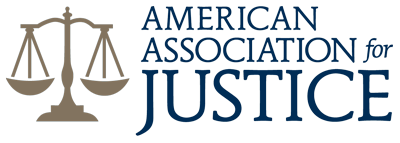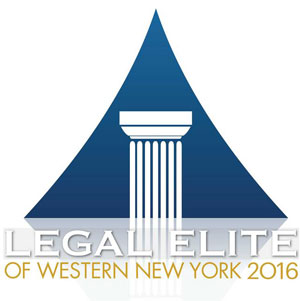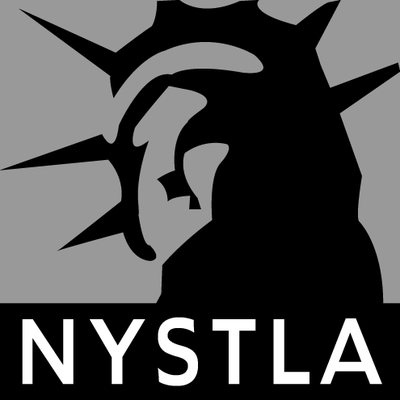Nursing homes are meant to be safe havens for our elderly loved ones, places where they receive the care, attention, and respect they deserve. However, the sad reality is that neglect in nursing homes is not uncommon, even in New York, a state known for its stringent regulations. Nursing home neglect can have devastating consequences for residents, leading to physical injuries, emotional trauma, and, in some cases, even death. Understanding the common signs of nursing home neglect is crucial for family members and friends who want to ensure their loved ones are well cared for. Recognizing these signs early on can make a significant difference in the well-being of nursing home residents and can help in taking prompt action to report neglect to the appropriate authorities.
Recognizing Physical Signs of Nursing Home Neglect
Physical signs are often the most noticeable indicators of nursing home neglect. These signs can manifest in various forms, each reflecting a different aspect of the resident’s care that has been neglected. One of the most common physical signs of neglect is the presence of bedsores, also known as pressure ulcers. These painful sores develop when a resident is left in the same position for too long without being moved or turned. Bedsores can be particularly dangerous if left untreated, as they can lead to severe infections and even sepsis.
Another physical sign of neglect is unexplained weight loss. When residents are not provided with adequate nutrition, they may begin to lose weight rapidly. This can be a sign that the nursing home is either not providing enough food or not offering meals that meet the resident’s dietary needs. Additionally, dehydration is another common issue that can arise from neglect. If a resident is not given enough fluids, they can become dehydrated, which can lead to a host of other health problems, including urinary tract infections, kidney failure, and confusion.
Bruises, cuts, or other unexplained injuries can also indicate neglect. These injuries may occur if residents are not properly supervised, leading to falls or other accidents. In some cases, these injuries might result from improper use of restraints or rough handling by staff members. It is important to inquire about any injuries your loved one may have sustained and to ensure that they are receiving the necessary medical attention to recover.
Emotional and Behavioral Signs of Neglect
While physical signs of neglect are often more apparent, emotional and behavioral changes in nursing home residents can also signal neglect. Residents who are neglected may begin to exhibit signs of depression or anxiety. They may appear withdrawn, disinterested in activities they once enjoyed, or unresponsive to visitors. These emotional changes can be a result of isolation, lack of social interaction, or even verbal or emotional abuse by staff members.
Another behavioral sign of neglect is a sudden change in personality or mood. A resident who was once cheerful and outgoing may become irritable, angry, or aggressive. These changes can be a response to the stress and frustration of being neglected or mistreated. Additionally, residents may begin to express a fear of certain staff members or show signs of discomfort when certain individuals are present. This fear or discomfort could indicate that the resident is being mistreated or neglected by those staff members.
It is also important to note changes in a resident’s personal hygiene or grooming. Neglect can lead to residents being left unbathed, with unkempt hair, dirty clothing, or untreated wounds. If you notice that your loved one’s hygiene has deteriorated, it may be a sign that they are not receiving the necessary care and attention from the nursing home staff.
Environmental Indicators of Neglect
The environment in which a nursing home resident lives can also provide clues to potential neglect. Nursing homes are required to maintain a clean, safe, and comfortable environment for their residents. However, when neglect is present, this standard of care is often compromised. One of the most obvious environmental indicators of neglect is the overall cleanliness of the facility. If the nursing home is dirty, smells of urine or feces, or has unsanitary conditions, it may be a sign that the facility is not being properly maintained.
Another environmental indicator of neglect is the condition of the resident’s living space. Residents should have clean bedding, a tidy room, and access to personal hygiene products. If a resident’s room is cluttered, dirty, or lacks basic necessities, it could be a sign that the nursing home staff is neglecting their duties. Additionally, if you notice that your loved one’s belongings are frequently missing or that they are not provided with necessary items like eyeglasses, dentures, or mobility aids, this could also be an indication of neglect.
Furthermore, a lack of proper safety measures within the facility can be an indicator of neglect. Nursing homes are required to have safety protocols in place to prevent accidents and injuries, such as handrails, adequate lighting, and emergency call systems. If these safety measures are not in place or are not functioning correctly, it can put residents at risk and may suggest that the nursing home is not prioritizing the well-being of its residents.
The team is very personable, patient and empathetic with their clients. They are upfront with you and will explain the entire process with you, they never lead you to believe otherwise, they tell you like it is and will not sell you a million dollar dream. Trust in Andrews, Bernstein & Maranto, PLLC, they work for you and he looks out for your best interest.” - Jane D.
How to Report Nursing Home Neglect in New York
If you suspect that your loved one is being neglected in a nursing home in New York, it is crucial to take immediate action. Reporting nursing home neglect can help protect your loved one and ensure that they receive the care they deserve. The first step in reporting neglect is to document any signs or evidence of neglect that you have observed. This documentation should include detailed notes about physical injuries, changes in behavior, and environmental conditions, as well as photographs if possible.
Once you have gathered sufficient evidence, you should report your concerns to the nursing home administration. Many times, issues can be resolved by bringing them to the attention of the facility’s management. However, if the administration does not take your concerns seriously or if the neglect continues, you may need to escalate the issue by contacting the New York State Department of Health. The Department of Health oversees nursing home facilities and can investigate claims of neglect.
In addition to reporting to the Department of Health, you can also contact the New York State Office of the Attorney General’s Medicaid Fraud Control Unit. This unit investigates and prosecutes cases of abuse and neglect in nursing homes and can take legal action against facilities that fail to provide adequate care to their residents.
It is also important to consider seeking legal assistance if your loved one has been neglected in a nursing home. A lawyer can help you navigate the complex legal process and ensure that your loved one’s rights are protected. They can also assist in filing a lawsuit against the nursing home to seek compensation for the harm caused by the neglect.
Should I Take The First Settlement Offer? Steps to File a Personal Injury ClaimRelated Videos
Legal Options for Victims of Nursing Home Neglect
When a loved one is subjected to nursing home neglect, it is natural to want to pursue legal action against the facility responsible for their suffering. In New York, nursing home neglect cases can be brought under several legal theories, including negligence, breach of contract, and violations of state and federal regulations. A successful lawsuit can result in compensation for medical expenses, pain and suffering, and other damages related to the neglect.
Negligence is one of the most common legal theories used in nursing home neglect cases. To prove negligence, you must demonstrate that the nursing home had a duty of care to your loved one, that they breached that duty by failing to provide adequate care, and that this breach caused harm to your loved one. Evidence of neglect, such as medical records, witness statements, and testimony, can be crucial in proving negligence.
In some cases, nursing home neglect may also constitute a breach of contract. When a resident is admitted to a nursing home, a contract is typically signed that outlines the level of care the facility is expected to provide. If the nursing home fails to meet these contractual obligations, they may be held liable for any harm that results from their breach of contract.
Additionally, nursing homes in New York are subject to both state and federal regulations that establish minimum standards of care. Violations of these regulations can serve as evidence of neglect in a legal case. For example, if a nursing home fails to provide adequate staffing levels, leading to neglect, this could be considered a violation of regulatory standards.
Pursuing legal action against a nursing home can be a complex and challenging process, but it is often necessary to hold the facility accountable for its actions and to ensure that your loved one receives the justice they deserve.
Verdicts & Settlements
Nursing home neglect is a serious issue that can have devastating consequences for vulnerable residents. By being vigilant and aware of the common signs of neglect, you can help protect your loved ones and ensure that they receive the care they deserve. If you suspect that your loved one is being neglected in a New York nursing home, it is important to take immediate action by reporting your concerns to the appropriate authorities and seeking legal assistance.
At Andrews, Bernstein & Maranto, PLLC, we are dedicated to advocating for the rights of nursing home residents and their families. If you believe your loved one has been a victim of neglect, our experienced legal team is here to help you navigate the legal process and seek justice. Contact us today to discuss your case and learn more about how we can assist you in holding the responsible parties accountable for their actions. Your loved one deserves the best care possible, and we are committed to helping you achieve that.












